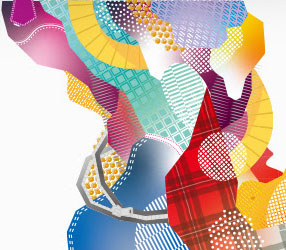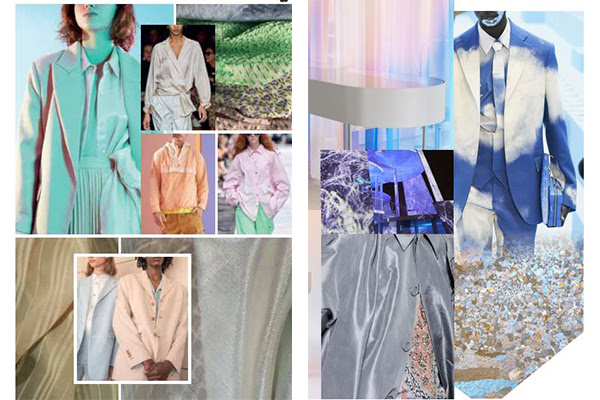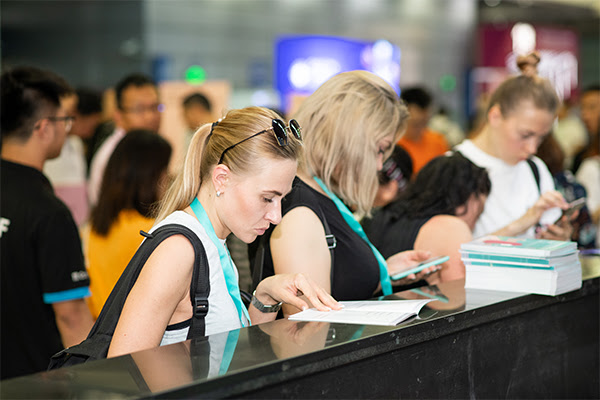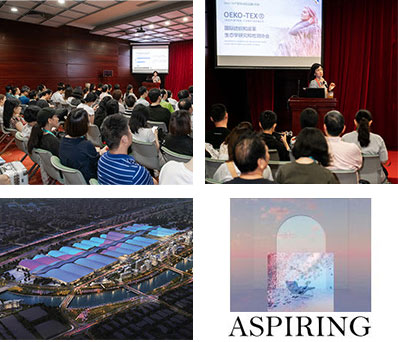FW
The newly released report ‘Nature of Fashion by the Biomimicry Institute’ notes many apparel and beauty brands like Adidas and Genusee are using recycled plastics to make their products. In 2020, Adidas plans to produce a record 15 to 20 million pairs of shoes made with plastic waste in partnership with Parley for the Oceans. The brand will also make 50 per cent of its polyester from recycled plastic this year.
Similarly, eyewear brand GlassesUSA.com recently launched its SeaClean collection made from upcycled plastic bottles. Another eyewear brand Genusee has also starting making eyewear from recycled plastic. A report titled Waste & Opportunity 2020 by Plastic Free July shows that though the production of plastic is set to quadruple by 2050, only 13 per cent is recycled in the US, which greatly contributes to climate change. The report predicts green house gas emissions from plastic to reach 13 per cent of the earth’s entire remaining carbon budget by 2050.
Over 110 fashion brands have committed to participate in the 2020 Circular Fashion Pledge launched by Sustainable Brands, the premier global community of brand innovators. The pledge asks brands to commit to one of three goals by the end of 2020: enable take-back or resale, increase recycled content, or design for durability. It provides them with options to either upcycle, repair, donate, or recycle their unsold items.
The community also urges brands to increase the total percentage of certified recycled content or scrap fabric by 10 percent in their top selling items. It also challenges brands to increase the use of non-blended materials, and/or modularity and repairability in their top five selling times.
Of 117 brands, 62 percent have pledged to enabling take-back/resale, 60 percent to increasing recycled content, and 50 percent to design for durability; roughly half have pledged to at least two commitments.
A survey by UK-based End of Tenancy Cleaning Services reveals, there has been a massive surge Google searches for clothes recycling in EU countries. Ireland has registered the highest number of searches with around 12,670 people googling how to recycle old clothes. This is followed by high search results in Germany where 9,390 people and the Netherlands where 6,840 people have searched for the same.
On the other hand countries like Luxembourg, Slovenia, and Slovakia have reported the lowest number of searches with 330 searches in Luxembourg, Slovenia and Slovakia are as low as 300 and 270 searches a month, respectively. Saveonenergy.com/uk also analyzed search volumes to find out which of the most-worn items of clothing are recycled most in each of the Top 10 EU countries. The results show shoes to be the most recycled item of clothing in 70 per cent of the ten countries analyzed, including Ireland, the Netherlands and Spain. While jeans are the most recycled item of clothing in 30 per cent of the 10 countries analyzed, including Germany, France, and Italy.
Industry leaders who attended the recent webinar ‘Carved in Blue’ noted denim manufacturers in Pakistan are slowly recovering from the COVID-19 induced lockdown. Hasan Javed, Director, Artistic Garment Industries (AGI), which resumed business by the end of April said his company aims to focus on implementing training and awareness sessions at the facility about how to conduct work safely under the new guidelines. The company aims to resume operations at full scale in July both in the fabric and garment business.
Azgard Nine, which is experiencing a surge of orders due to pent-up demand for garments, particularly from Europe, warned the flurry of orders is fleeting. The company expects Pakistan to regain its share when markets finally resume at a normal level. However, in order to be agile, companies may need to eliminate the number of suppliers essential to production. Zaki Saleemi, Representative, Crescent Bahuman said companies will have to simplify their suppliers and inventories, which may bode well for Pakistan’s crop of vertical denim manufactures.
As per Ebru Debbağ, Executive Director, Soorty, the industry will see an imbalance of supply and demand in future as the purchasing power of the customers have diminished by 50 per cent.
Lowering its profit outlook for the year through April, Japan's Fast Retailing, owner of clothing brand Uniqlo, now expects its annual operating profit to decline by 50 per cent to 130 billion yen rather a previously expected drop of 44 per cent as the company reported operating loss of 4 billion yen in March-May quarter.
However, the company reported a strong rebound in Uniqlo's domestic same-store sales for June as its business in China was recovering at a faster-than-expected pace. Uniqlo's domestic same-store sales, including online purchases, rose by 26 per cent in June from a year earlier. The brand is seeing a faster-than-predicted pace of recovery in Japan and China, and would continue to open more stores around the world. Fast Retailing has also opened most of its stores in China and Japan. The company’s focus on Asia may help shelter it from the worst of the global pandemic.
Gap Inc has launched a B2B product program to supply large organizations reusable, non-medical grade cloth face masks for their employees as they return to work. These masks are made with triple-layer cotton and comfortable ear straps designed per Centers for Disease Control and Prevention guidelines. They are available in a variety of colors like brown, red, navy, and shades of pink and green with an option to add a custom logo. These masks are sold in packages of five.
Gap has already sold 10 million non-medical grade face masks to employers, including the City of New York, the State of California, Kaiser Permanent and a leading consulting firm. This is in addition to the sourcing of millions of non-medical masks and other personal protective equipment (PPE) for the healthcare sector during the pandemic, and production of cloth masks that Gap Inc.’s brands are selling to consumers.
The company’s brands are also donating 200,000 masks to community organizations and causes that help those in need. In May, it signed its first ever multi-brand licensing agreement with IMG to deliver cross-category product extensions with a focus on the brand’s casual, American style that includes support for Gap Kids and babyGap.
Men’s contemporary fashion and lifestyle trade show Liberty Fairs plans to launch a virtual market place with wholesale platform Joor. The marketplace will go live from August 3-5. Liberty Fairs also plans to cancel the shows originally slate for August and September, citing safety concerns and restrictions as a result of the continuing COVID-19 pandemic. The organizer recently welcomed its former Project sales manager Edwina Kulego to the team, who will be joining as the vice president of Liberty Fairs.
Earlier this month, Informa Markets had announced its plans to cancel its September apparel and footwear trade shows, including Coterie, Fame, Moda, Sole Commerce, Project and Children’s Club. The trade shows were to be held in New York City.
Other trade show organizers such as Pitti Immagine and Kingpins have opted for digital events, though each has indicated that virtual gatherings will not replace in-person events in the future.
Putting around 1,300 jobs at risk, British department store chain John Lewis plans to close eight stores. The closures will include two major outlets in Birmingham and Watford as it would continue to invest heavily in e-commerce, with online sales looking set to represent around 60 to 70 per cent of total sales this year and next, compared with 40 per cent prior to the COVID-19 crisis. The closures will help the retailer secure the sustainability of partnership and continue to meet the needs of its customers however and wherever they want to shopp.
Considered as middle England’s favorite department store, John Lewis, follows menswear shop TM Lewin, department store Harrods, sandwich chains Upper Crust and Pret A Manger and fast-food outlet Burger King among other UK brands to have warned of job cuts in the last two weeks.
UK retailers have been hammered by the lockdown and data shows that shoppers remain wary of entering stores even as the restrictions ease, with footfall down 50 per cent year on year during the third week of reopening in England and Northern Ireland, according to the British Retail Consortium. The pandemic has heaped additional problems onto many retailers who were already struggling due to tight margins, competition from online-only stores and the cost of business rate taxes.
The Foreign Buyers Association of Philippines (Fobap) has received $80 million worth garments orders from American fashion brands. These are the first purchase orders that the association has received since March. The association is a group of buyer representatives that monitor for their foreign principals how orders are being done in economic zones in the Philippines, from sampling and sewing to shipment and even after-sales.
Fobap members had been appealing to their principals abroad to give them at least some of the orders, especially since many workers are having a difficult time to cope with the health crisis. Around $300 million worth of planned orders were canceled at the start of the year due to the pandemic.
However, the situation improved last week as popular brands Ann Taylor, Vineyard Vines and Ralph Lauren confirmed orders worth $28 million. Another $50 million was made by Lucky Brand Jeans, Talbots, Kohl’s and Champion.
 To be held concurrently with the first Shenzhen edition of Yarn Expo, as well as CHIC and PH Value, Intertextile Shenzhen Apparel Fabrics will offer China a comprehensive, convenient platform for sourcing between seasons. The rebranded expo will be held from July 15-17, 2020 at the Shenzhen World Exhibition and Convention Center. Over 2,000 exhibitors will attend the exhibition spanning 60,000 sq mt.
To be held concurrently with the first Shenzhen edition of Yarn Expo, as well as CHIC and PH Value, Intertextile Shenzhen Apparel Fabrics will offer China a comprehensive, convenient platform for sourcing between seasons. The rebranded expo will be held from July 15-17, 2020 at the Shenzhen World Exhibition and Convention Center. Over 2,000 exhibitors will attend the exhibition spanning 60,000 sq mt.
Broad product display for myriad visitors
Exhibitors at Intertextile Shenzhen Apparel Fabrics will showcase a wide variety of products including cotton, wool, silk, linen, ramie, man-made, knitted, coated fabrics, lingerie and swimwear fabrics, functional fabrics, printed fabrics, fibers and yarns, embroidery and lace, accessories, textile-related CAD/CAM/CIM technology, design and styling agencies, and fashion & textile trade publication.
Visitors will include garment manufacturers, trading companies. import and export corporations, wholesalers and distributors, agents, department stores, retailers and store chains, buying offices, fiber producers, spinners and weavers, trade association, interior designers, textile institutes, etc. Intertextile Shenzhen Apparel Fabrics will also host a series of fringe programs with numerous highlights such as special forum and knowledgeable seminars to add extra value for the presence of its visitors.
International trends for Spring/Summer 2021
The fringe program at Intertextile Shenzen Apparel Fabrics will host a presentation of the international trends for spring/summer 2021 by the Intertextile Directions Trend Committee. These trends will focus on the themes: Sobriety, Preservations, Diversity and Spontaneity.
Sobriety: Embracing the notion of inclusivity, the Sobriety theme will reveal raw and poetic humanity through its sheer and natural tone. Introducing an era of natural elegance, refined imperfections and smart preciousness, the theme will focus on luminescent colors with delicate skin tones to create a sensual and charming effect. Fabrics displayed in this theme will be lightweight fabrics with clean surfaces and refined textures. They will have a lustrous and iridescent finishing of tulles, laces and mesh. The softly sketched flowers and foliage on these fabrics will evoke a sense of modern romance while irregular strips printed on evanescent textures, delicate pastel travel engravings and ephemeral optical draws will add a touch of reality to the collection.
Preservations: Emphasizing on the return to natural fibers, Preservations theme will focus on simple work wear and durable innovative essentials. Colors in this theme will be vegetal khakis and greens in different tones as the base and natural neutrals and warm browns as complements. The focus will be on simple work wear fabrics like cottons, linens and denims. These fabrics will have a lightly stone washed and raised finishing with stretch. They will be rainproof, windproof and breathable with exotic stripes, lightweight madras checks and modern ikat stripes.
Spontaneity: This theme will reveal a cheerful and joyful way of rediscovering adolescence by mixing strong primary light shades with reassuring essential nostalgic neutrals. Fabrics will include a confluence of artificial and natural preppy cottons, triacelate, linens, poplins, piques, compacts and serges. These fabrics will have chambrays and pencil strips on them and will give a fresh look to circular knitting.
Diversity: Here the focus is on an expressionist lifestyle through its synthetic inspired colors that will be mixed with deep pigments and earthy shades. Reds and Browns will be combined with indigo blues with metallic yarns and neon accents being used on rustic fabrics such as cotton, linen, cupro, paper. The theme will highlight summer blends of worsted wool with silk and recycled nylon with wide bicolored stripes, push giant expressive motives and multi-colored jungle leaves.
Sneak peek into Autumn/Winter 2021-22 trends
 The Intertextile Shanghai Apparel Fabrics will also give visitors a comprehensive preview of the seasons ahead with a sneak peak at the Autumn/Winter 2021-22 trends. These trends will focus on four themes: of Feel Good, Impact, Preservation and Lyric.
The Intertextile Shanghai Apparel Fabrics will also give visitors a comprehensive preview of the seasons ahead with a sneak peak at the Autumn/Winter 2021-22 trends. These trends will focus on four themes: of Feel Good, Impact, Preservation and Lyric.
Feel Good: Aiming to create a retrospective feeling for tenderness, the Feel Good theme will focus on soft neutral and gentle tones. The fabrics in focus will be recycled, protective, inflated and padded fabrics that give the wearer a warmer and cozier look. The fabrics will mostly comprise tweeds, lightweight blends of wool, cashemere and silk. Highlight jersey and sparkling materials with goblins and layered prints.
Impact: Blending beauty with dynamism, Impact will showcase ultra bright colors mixed with masculine neutrals. Fabrics will mainly comprise recycled polyester and cotton, quilted polyamide, liquid polyamide and Lycra. These fabrics will have laser, enamel embossed finishing and technical processes with extravagant prints.
Preservation: Emphasizing on the values of honesty, integrity and individuality, Preservation will focus on a sensitive color palette nurtured by the natural elements of earth and forests. The fabrics displayed under this theme will include natural blends with alpaca and camel hair. They will also include bulky wovens with fancy checks and bold stripes in coarse wool.
Lyrics: The final theme for A/W 2021-22 will blend luxurious, historical and dramatic colors with classic dark shades. Fabrics will include dense rich satins alongwith cloque, moiré, taffeta, crushed velvet and fine chenille. The fabrics will also blend wool with silk and cashemere. The fabrics will have exquisite finishings of rare laces, extra fine tulle, metallic embroideries, sequins and rhinestone appliqués.
Seminars on design and sustainability
Intertextile Shenzhen 2020 will also host seminars on two themes: Design & Trend and Sustainability. ‘Design & Trend’ seminar will focus on topics such as Key Fashion Trend Forcasting in China, Fabric China Trends 2021/22 AW, Interpretation of Color Trend in 2021/22 AW, Trends of New Fiber Based Yarn 2021/22 AW, Trends of Center Artificial Fur, Trends of Differential and Functional Knitted Fabrics and Trends of Shirt Fabrics.
Sustainability will cover will topics such as sustainable fashion, Green Innovation Practices, Fabric Development Scenario, Interpretation For Sustainable Fashion, Building the Ecosystem of Quick Response Apparel Chain, Material Projection and Quick Response to Overcome the Hard Times, and New Regulations of Eco Passport and Standard 100 by OEKO-TEX in 2020.












